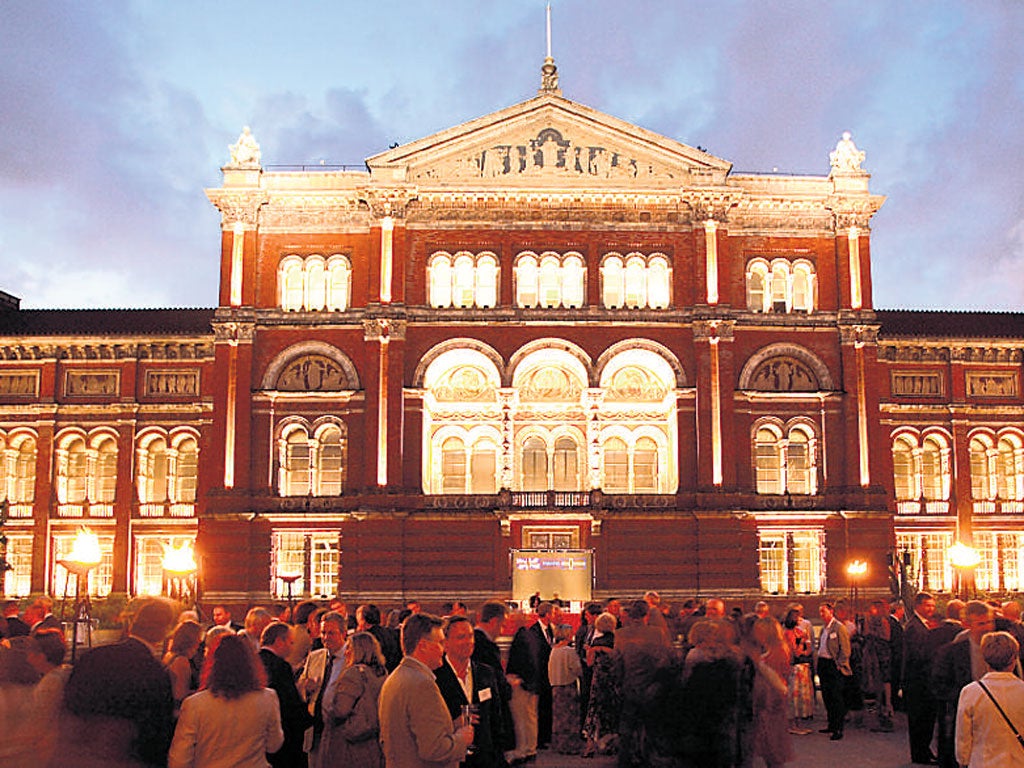David Lister: Here's a way to make museums and galleries more welcoming places
The week in arts

Today, Radar offers a splendid treat for half term, a chance for readers to see some of the nation's museums' hidden treasures on special tours. It should be fascinating, but it also begs the question of why there are such treasures hidden from public view. Yes, the obvious answer is that our museums do not have sufficient public space to display all their objects. But here is where the Lister "museums charter" would come in.
Under my charter, museums would have a chance to put all their greatest treasures on show, not by building more rooms, but by lending to other museums. Paintings that lie in the Tate's basements could surely be displayed in smaller galleries and museums across the UK. And, as with the Tate, so with literally every other museum and gallery. A nationwide hidden-treasures lending policy should operate – though not until after this half-term, of course.
But that would only be part of the charter. A key clause would see a change to museum and gallery opening hours. This would be the "let's stop being bonkers" clause. For bonkers it is that all museums and galleries are open when much of the population can't actually go. Those in employment simply can't get there on weekdays, and the institutions shut their doors as the working day ends. They are open at weekends, of course, and in recent years the bigger galleries have stayed open late for one evening a week.
But why just one evening? Surely it would make more sense to be closed one day a week and instead open every evening on the remaining days. Let gallery-going become a normal choice for a night out, just like cinema, concert and theatre-going.
Let there also be a proper, sophisticated debate on free admission. What was an absolutely correct and enlightened policy a decade ago feels more questionable at a time of arts cuts, and when there is a strong suspicion that free admission is subsidising tourists who would be more than willing to pay. Of course, there should always be free admission for children and pensioners. But universal free admission has become questionable.
As part of the charter, museums should ask their audience if they would have any objection to paying, and publish the demographic make-up of their visitors. If there is a large percentage of tourists, then asking British taxpayers to continue to subsidise them feels wrong. We may well end up keeping free admission, but let's make the judgement on properly published information, and not be frightened off from discussing the issue by a very powerful and sometimes self-righteous lobby.
Free admission does lead to another point in my charter: the "special exhibitions" clause. At present our free museums and galleries stage regular exhibitions for which visitors do have to pay. The charge for these exhibitions has been rising rapidly, and makes a mockery of free admission. No exhibition should cost more than £10. And exhibitions which simply use objects from that same free institution should be free.
Readers will, no doubt, email me with more points to put in the museums charter,but having them stay open longer and display more of the nation's treasures seems a reasonable starting point.
How to solve a problem like Desdemona
One of the theatrical events I'm most looking forward to is a production of Othello at the National, directed by the NT's artistic director, Nick Hytner. He tells me he has cast Adrian Lester as Othello and Rory Kinnear as Iago. He hasn't yet cast Desdemona. I suggested there should be a reality TV show to cast her, and he looked interested, or maybe just polite. But why should it just be musicals that get the TV treatment? I could quite fancy spending the odd Saturday night watching a production line of wannabe Desdemonas.
It's a free ticket, so all you have to pay is £1.75
As ever, the emails about booking fees and my campaign end to them continue to come in. One from Paul Trewavas catches the eye, as it highlights a laughable new trend, the booking fee on a "free" ticket. He points to the Southbank Centre, which is publicising a free gamelan orchestra workshop in June. The Southbank Centre's website says: "Please note, this free event requires a ticket. You can reserve your ticket online (£1.75 transaction fee) or by phone (£2.75 transaction fee)." Perhaps the event will be followed by a discussion on what "free" means.
d.lister@independent.co.uk
Twitter.com/davidlister1
Subscribe to Independent Premium to bookmark this article
Want to bookmark your favourite articles and stories to read or reference later? Start your Independent Premium subscription today.

Join our commenting forum
Join thought-provoking conversations, follow other Independent readers and see their replies